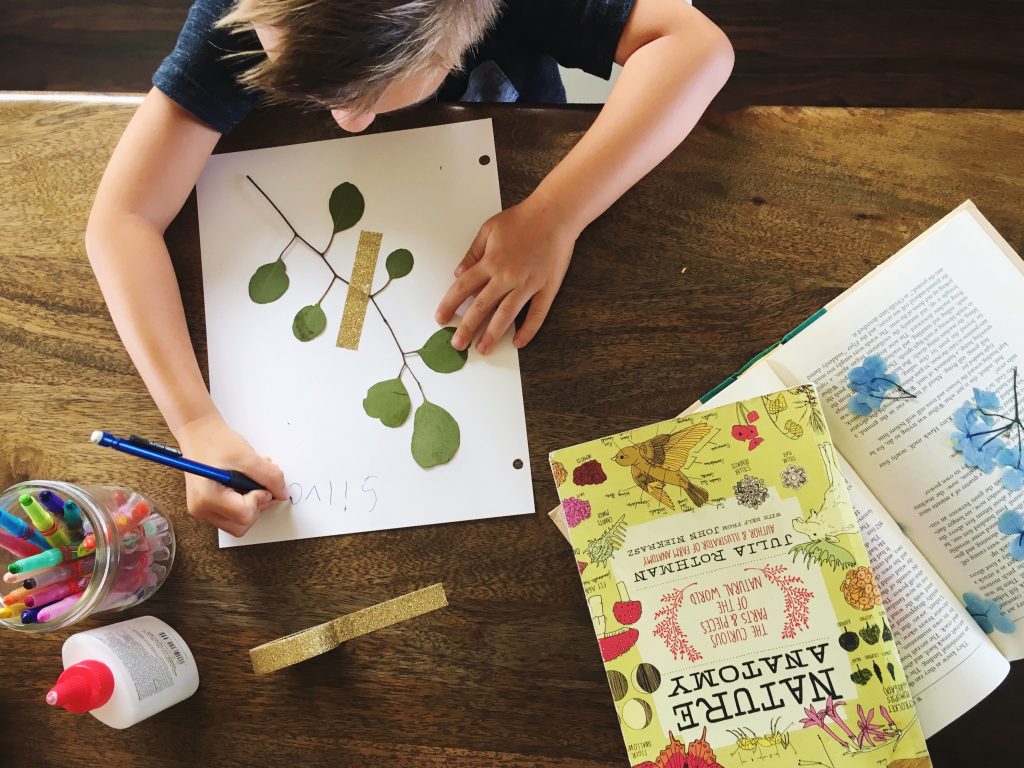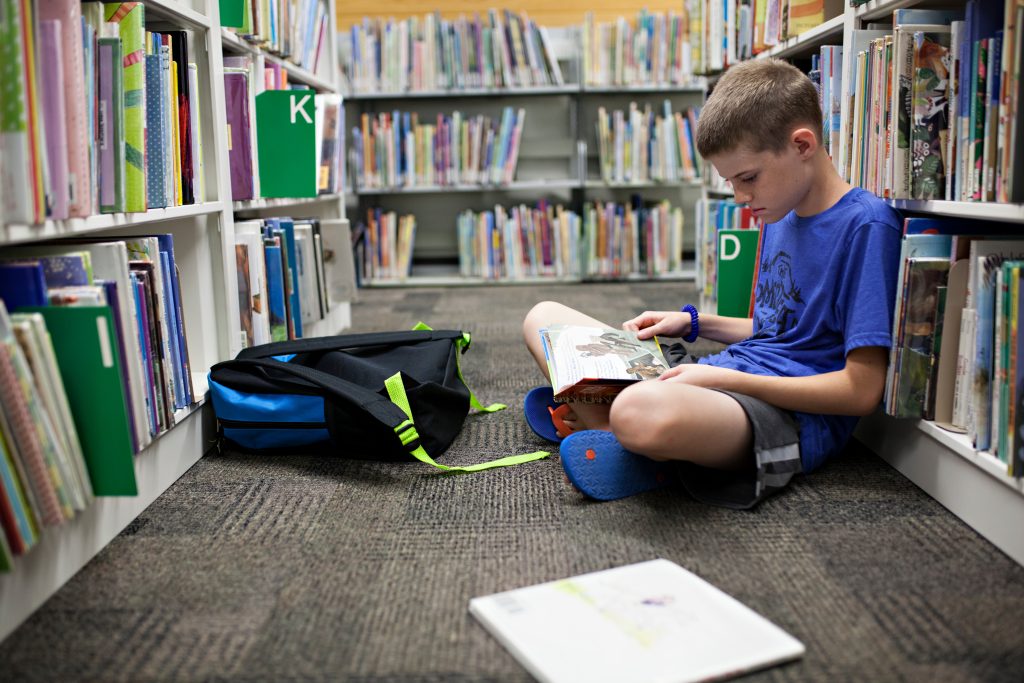You’ve decided to homeschool your child while on the road, but the big question is how do you homeschool. Where do you start? Learning how to homeschool takes some patience and research. There are quite a few options if you know where to look and what your child needs be it kindergarten or high school.

The Benefits Homeschooling While Traveling
Homeschooling, also called roadschooling, is a great way to educate children while traveling in your RV. It’s not easy work, but for parents homeschooling, it offers the freedom to teach to a child’s learning style, create lessons around the locations you are traveling to and focus on values that your family wants to promote.
Roadschooling isn’t a free-for-all. There are homeschooling laws and benchmarks students are required to meet. For the kids, homeschooling can be a wonderful way to learn reading, writing, history and math through experiential learning.
Homeschool Laws
The first thing to figure out is which state’s homeschool laws do you want to follow. The homeschool law states that you must go by the laws in the state that you are “physically present” in. If you are living in a state for a month or more while school is in session, this is the case. If you are only passing through, you can choose which state works best for you. Even if you own property or pay taxes in a different state from where you are, you can choose which state’s laws to follow.
If you have the flexibility to choose your state to homeschool in, know that certain states have more regulations than others. In Texas, there is one option for homeschooling. It doesn’t require that a parent tell the state they are homeschooling. There are state mandated subjects, but no assessments are required to move from grade to grade. Also, parents are not required to have teacher qualifications, which isn’t always the case.
In Pennsylvania, there are four options for homeschooling. The options are:
- Homeschooling under the homeschool statute
- Homeschooling with a private tutor
- Enrolling your child in a satellite of a religious day school
- Enrolling in a satellite of an accredited day or boarding school
Pennsylvania also requires notification, teacher qualification for homeschooling in option one. It has mandated subjects, assessments under option one, and immunization requirements.
Each state is a little different, so do your research. If your child is poor at taking tests, try to find a state that doesn’t require state testing. The point of homeschooling is to do what’s best for your child.

How to Choose a Curriculum
Choosing a homeschooling curriculum is like choosing to purchase a home in a certain school district because they excel in what your child likes, be it drama, math, science, or sports. Finding a homeschooling program depends on where they want to take their education, especially when they reach high school. Do they want to go to college, trade school, or directly into the workforce? Although it might not be as critical to know this when your child is in first grade, these are things to you want to think about when it comes to choosing a curriculum.
Start with Cathy Duffy’s Curriculum Reviews
One of the best homeschooling resources for curriculum is Cathy Duffy’s website. You can find reviews on the top homeschooling programs that focus on specific subjects or grade levels.
Search for programs by using filters for grade level, subject area, point of view, meaning religious, economic or political perspectives, methodology, the need for parent/teacher instruction, educational approaches and learning style features, and finally technology or learning environment. You may have to try a few filter options to find a program that will work.
The more specific you are, the less likely it is that you will find a program that meets all of the specifics you’re looking for. If you’re looking for a Montessori approach or a traditional methodology, you can put that in and find programs, but if you add in that you want it to be all hands-on, then you might get fewer results.
Cathy Duffy also has two books that can help you find which curriculum is best for your child. “102 Top Picks for Homeschool Curriculum” or “How to Choose Homeschool Curriculum.” You may want to start with one or both of these books to get a handle on the myriad of choices.

Crowd Source Your Questions on Facebook
If you’d like more information on roadschooling from those who are already doing it, go to Facebook! Here you can get suggestions from people all over the country. All homeschooling parents have their own favorite programs, and most will share openly their thoughts and feelings, which is incredibly helpful.
YouTube and Blogs
Other places to find reviews about home education, check out YouTube and blogs written by homeschool parents. If you’re looking for more specific information on high school requirements to get a child into a specific program, or what a homeschooling day might look like, these are great resources.
How to Maintain Friendships on the Road
Homeschooling gives you another opportunity to connect with other families on the road. Making connections with a homeschooling family can provide playmates for your child and can also offer a way to co-op lessons and classes. If one parent is really good at teaching science, that could be a way to share the homeschooling duties. Taking field trips with other homeschooling families can be educational and fun for both groups, including the adults.
Visit Kid-Friendly Places
Taking your child to the park, the pool or the playground where there will be other families can help you connect with people. Strike up a conversation and see what other full-timers do for school. Exchange emails, phone numbers, and information of homeschooling resources. You’ll never know if you don’t ask!

Join a Support Group
The Internet makes the world smaller and puts information in the palm of your hand. Locating support groups should be easy. Type in homeschool groups or support groups for homeschoolers and let the information roll in. If you’re on the move, you might want a virtual support group. However, if you’re stationary, you can find one in your area to share resources and ideas with.
Host Get-Togethers in Campgrounds
Hosting get-togethers are a great way to get to know other people in the same situation you’re in. Good times to host these events are at the beginning and end of the school year. This is when books, manuals, and workbooks can be shared, traded, and purchased at discounted rates. While the adults swap materials and stories, the kids have peers to play with. Win-win.
Pursue hobbies in each state
Scrapbooking, knitting, papercrafts, birdwatching, exercising… No matter what you do for fun or recreation you can look for meetups where you can get together with like-minded people.
For kids, look for drop in dance lessons, karate classes or open gyms. This is another way to meet people and gain contacts. Maybe someone at the class has heard about a great family friendly field trip or knows of a local homeschool co-op at your next destination. You will never know if you don’t ask.
Maintain Current Friendships via Facetime or Phone Calls
Once you’ve made your homeschooling contacts, you have to nurture the relationship. Be sure to keep in contact with daily, weekly, or monthly check-ins. Some use Facetime or Zoom, while others do group phone calls. Remember to collect contact information from anyone you feel a connection with and want to share information. Write it in a notebook and add in details of the conversation with programs they use, names and ages of their children, etc.


Leave a Reply